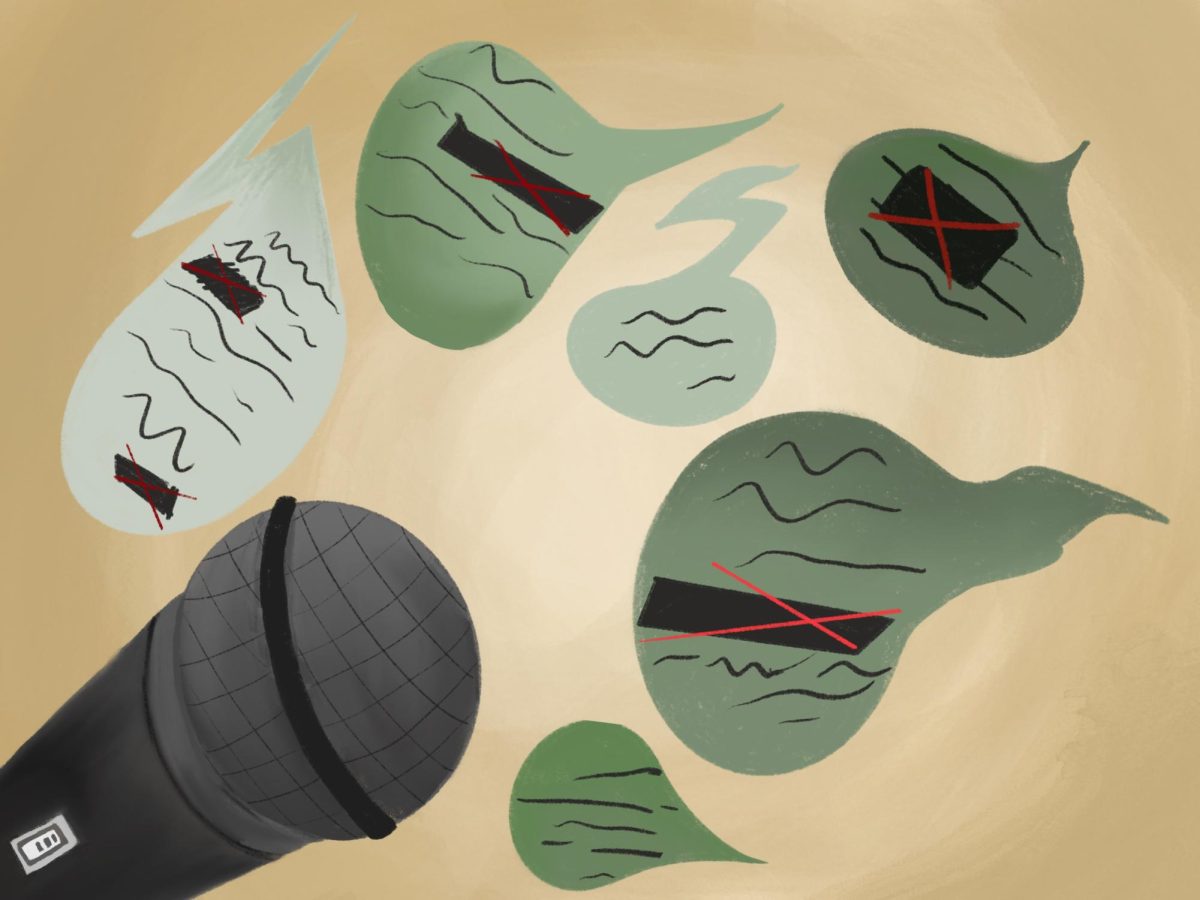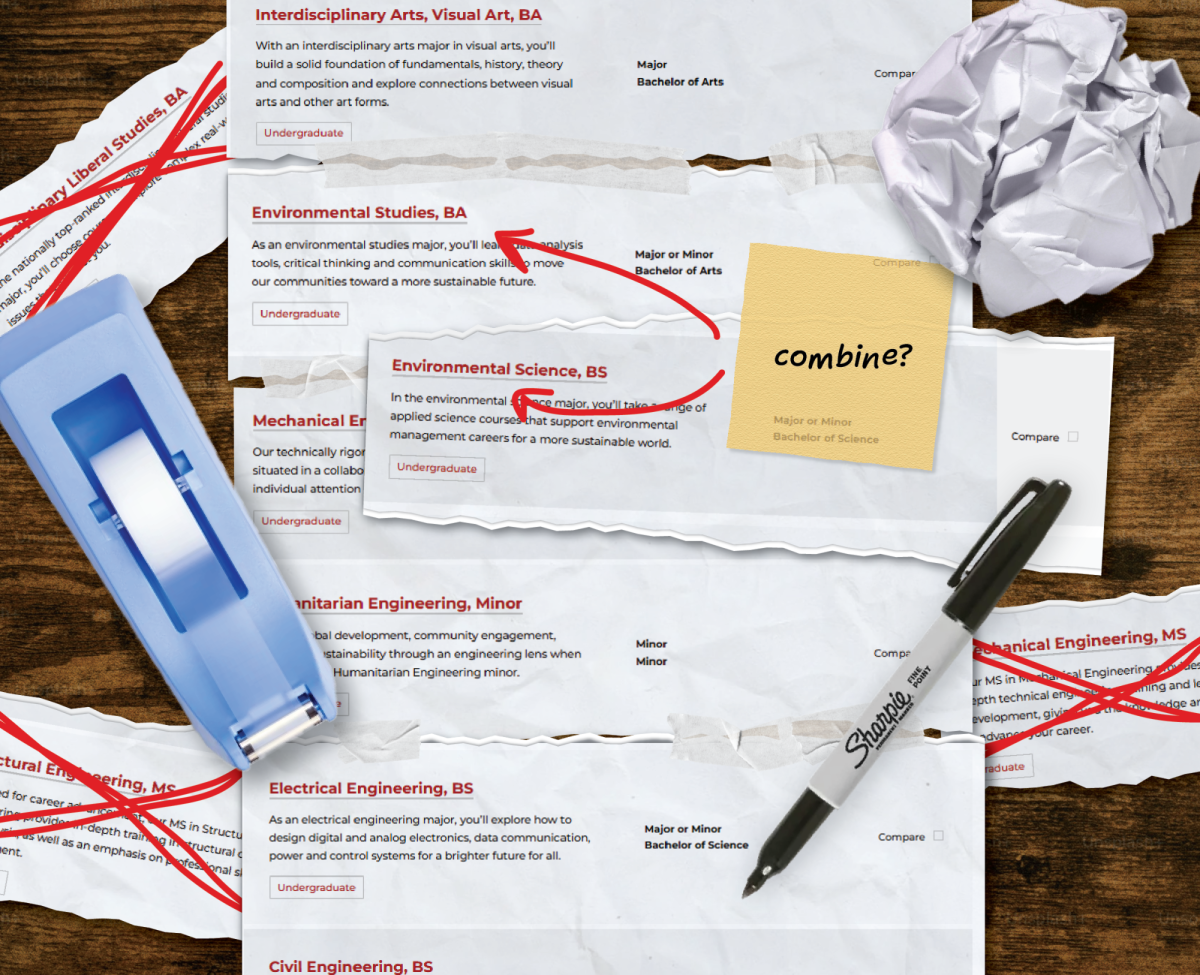From New York to California, Michigan to Texas, college students across the nation have pitched tents on campus lawns to protest the war in Gaza.
The national movement was sparked by the Gaza solidarity encampment at Columbia University. Launched earlier this month, the encampment was created to call upon Columbia to divest from companies profiting from the Israeli government’s war in Gaza. Since its creation, hundreds of students have camped out overnight on the lawn.
Though a peaceful demonstration, things escalated when Columbia President Minouche Shafik sent in the New York Police Department (NYPD) to arrest protesters for trespassing April 18. Outraged at the pushback, a coast-to-coast slew of encampment protests in solidarity with Columbia have been popping up across the country.
While Seattle University hasn’t set up an encampment, national events have certainly created a conversation on campus, along with local institutions University of Washington, Evergreen State College and University of Puget Sound launching their own solidarity encampments.
Considering that students attending private universities have fewer speech rights than students who attend public universities, some students believe that Seattle U’s student speech policies are repressive, while administration believes they are necessary.
One activist from Seattle U’s Students for Justice in Palestine (SUSJP) attempted to organize a demonstration to express solidarity with Palestine. They wanted to bring in a speaker from Jewish Voice for Peace, a reputable anti-Zionist Jewish organization. Although their rally was approved by the school, the speaker was not.
“The administration cited concerns for violence but failed to give any history regarding those organizations on campus. They said that the issue was ‘highly charged.’ I found this concerning overall because it implies that any controversial subjects warrant the right to suppress free speech,” They said.
They explained that they followed every rule in registering the demonstration under the On-Campus Demonstrations Policy, a rule that requires student organizers to meet with the Center for Student Involvement (CSI) 48 hours in advance to register demonstrations.
In order to meet requirements, the demonstration cannot block student traffic, disrupt classes or interfere with the rights of others. Department of Public Safety (DPS) officers must also be present during the demonstration. Students attending private institutions are not protected by the First Amendment, meaning Seattle U gets to determine which speech freedoms students have access to.
Regarding student-led demonstrations, expectations largely reflect the concern that university operations are not disrupted. Alvin Sturdivant, the vice provost for student affairs, further explained how the Code of Student Conduct ensures that rights are exercised accordingly.
“Students are encouraged to exercise free speech on campus, and that is an important part of the educational experience,” Sturdivant said. “The Code of Student Conduct sets out the necessary boundaries of time, place and manner of speech in order to protect the rights of others to pursue their education without disruption or undue harm.”
Despite alleged encouragement, these speech rules have come across as unjust to many student activists, including those advocating for a free Palestine and divestment from pro-war companies.
Another student activist has encountered similar frustrations with the student speech policies.
“Another time I was flyering in Pigott for affordable healthcare, something that I consider a basic human right. I was approached by public safety officers who told me I had to get off campus because I had to have my flyers approved.”
Under the Posting & Advertising rule, all signs, notices, flyers, banners and announcements must be approved at the CSI before being posted on school-sanctioned bulletin boards. However, because the student was handing out flyers, and not putting them up, she believes that she did not violate the code.
Whether one wants to hold a protest or hand out flyers to their peers, Sturdivant believes that the On-Campus Demonstration Policy is necessary despite student concerns.
“When there are large gatherings on campus, we also want to make sure the appropriate resources are in place to ensure the safety of demonstrators and all other community members,” Sturdivant said.
In an email sent out to the campus April 30 by President Eduardo Peñalver on behalf of Seattle U, Sturdivant’s comments were reiterated, particularly noting that the university will “continue to be guided by three important interests around free expression.”
With the right to protest, students must also be able to pursue their education without disruption, and safety is an utmost priority, according to Peñalver.
“Each of these is essential to our Jesuit education mission of empowering leaders for a just and humane world. Each deserves – and receives – our fullest consideration,” Peñalver stated in the email.
Reflecting upon the speaker and request issues, the student activist questioned its significance.
“I think that it is a big contradiction to the idea of a protest to register one,” they said. “I understand the university’s concern for safety, but if it truly wanted to pride itself on allowing free speech and supporting student activists, I think the policy should be abolished.”
These students’ experiences are especially relevant to the discourse surrounding the pro-Palestinian movement and student-led protests. The national discouragement of free speech across universities, public and private, has caused concern for students aiming to discuss controversial topics. The debate about the extent to which student speech should be protected is widespread, as America’s universities once again find themselves at the forefront of free speech issues.













